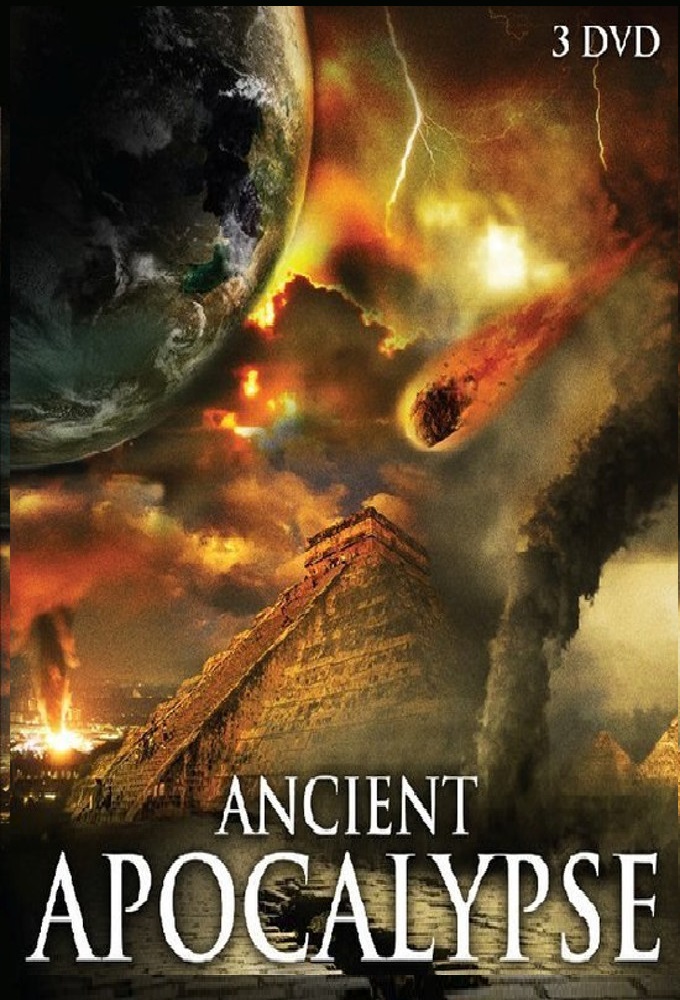The emergence of documentaries that delve into ancient civilizations and their potential catastrophic downfalls has garnered an enthusiastic audience. One such title, “Ancient Apocalypse,” presents an intriguing premise by examining theories surrounding humanity’s past, its relationships with the environmental and cosmic dynamics, and the catastrophic events that may have shaped civilizations. However, much like the content it seeks to highlight, the premiere date of “Ancient Apocalypse” is shrouded in theories and debates, attracting attention and speculation from both enthusiasts and skeptics alike.
In this exploration, we shall dissect the various theories surrounding the premiere date of “Ancient Apocalypse,” scrutinizing its implications, the controversies that ensue, and the societal thirst for knowledge about our historical tapestry. We will journey through multiple contextual layers, unveiling the intricate relationships between ancient narratives, modern interpretations, and the promise of a transformative cultural perspective.
To begin, it is essential to consider the historical significance of the promised content. “Ancient Apocalypse” seeks to interrogate events that potentially altered the course of human history. The term ‘apocalypse,’ often laden with connotations of doom and destruction, invokes curiosity about human resilience and adaptability in the face of catastrophic upheavals. Advocates for the documentary posit that such themes are not merely speculative; they invite viewers to reconsider their assumptions about ancient peoples and their capabilities in managing environmental challenges. This transformation of perspective is a critical facet of the documentary’s allure.
Yet, as viewers eagerly anticipate the premiere, a notable controversy emerges regarding the authenticity of the narrative laid before them. Skeptics question the basis of the claims made in the trailer, the validity of the theorized events, and the potential biases of the filmmakers. Issues surrounding the interpretation of archaeological findings and the romanticization of historical narratives are thus brought to the fore. Such controversies are not merely academic; they reflect a broader societal discourse on historical accountability and the ethical implications of reconstructing narratives that could inform contemporary understanding.
As various premiere dates have been proposed, an intellectual fervor ignites among scholars, critics, and the public. On one hand, some posit that an earlier release aligns with current global crises, establishing a sense of urgency in the dialogues it intends to provoke. The release would serve as a commentary, perhaps suggesting that without acknowledging past mistakes, humanity risks condemning itself to repetition. Conversely, those advocating for a delayed premiere argue that the documentary must be meticulously composed to substantiate its assertions credibly, thereby generating a more sustainable dialogue that transcends mere sensationalism.
The debate surrounding the timing of the release reflects not just on the production’s integrity but also on the collective psyche of society regarding ancient narratives. The yearning for connection with our ancestral past fosters an insatiable appetite for ‘truth’—a term fraught with complexity in historical discourse. Each proposed premiere date invites scrutiny; within this societal framework lies an exploration of how we, as a collective, attempt to reconcile our identity with the lessons of history.
Moreover, the anticipation surrounding “Ancient Apocalypse” acts as a barometer for public interest in scientific inquiry and the broader implications of environmental degradation. Many argue that documentaries such as these serve a dual purpose: entertaining while educating viewers, ultimately motivating a more profound contemplation of humanity’s future. As contemporary crises unfold, the intersection of these themes encourages a more engaged audience that seeks to apply historical lessons to current challenges.
In a world increasingly entrenched in existential quandaries—from climate change to societal strife—”Ancient Apocalypse” emerges not as an isolated case, but rather as part of a broader cultural phenomenon. The controversies stemming from its anticipated premiere highlight the delicate balance between entertainment and education inherent in documentary filmmaking. Discourse around premiere dates reinforces the relevance of meticulous research, balanced narratives, and ethical storytelling practices in bridging the past and the present.
In sum, the conversations surrounding the premiere date of “Ancient Apocalypse” illuminate crucial aspects of our relationship to history, knowledge, and identity. The documentary not only endeavors to unveil the complexities of ancient civilizations in the face of cataclysmic events but also challenges viewers to engage with the narratives that have shaped human existence. Each theory and controversy enriches the dialogue, underscoring a collective need for critical engagement with our past as we forge into an uncertain future.
As the premiere date approaches—whether sooner than later—it will indubitably generate discussions that extend far beyond the confines of its narrative. The implications of the documentary promise a shift in perspective, compelling viewers to confront their understanding of history while fostering curiosity about the profound lessons it holds. The cultural ramifications of both the documentary and its premiere date echoes throughout society, underscoring the significance of historical discourse in shaping collective consciousness.
